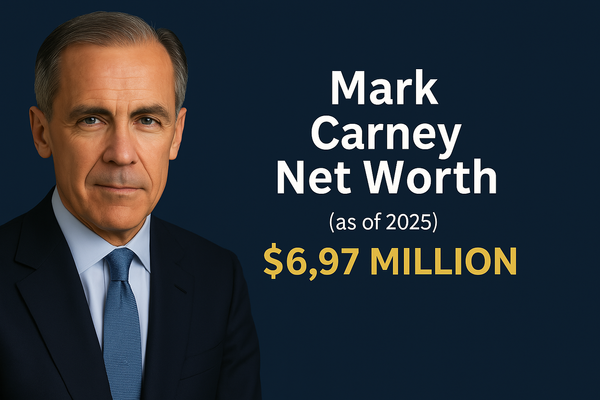Breaking News: Latest Updates on Pierre Poilievre's Political Moves
Pierre Poilievre's latest news shows a remarkable change in Canadian politics. His previous 20-point lead over the Liberals has disappeared into a dead heat. The upcoming April 28 election represents the minimum campaign period of 36 days under Canadian law, and the digital world has altered substantially. The Conservative leader started his campaign with promises of change and clearly distanced himself from U.S. President Donald Trump. Recent Ipsos polls suggest that 43% of Canadians think Poilievre would "roll over and accept whatever Trump demands." The Conservatives still dominate Alberta and the Prairies, along with British Columbia, despite their declining national poll numbers. Canadian politics faces a vital moment while Poilievre presents himself as an agent of change and describes the previous years as a "lost Liberal decade."
Poilievre Launches Campaign with 'Canada First' Message
Conservative Leader Pierre Poilievre showed his "Canada First" campaign message, a smart move to tackle growing concerns about Canada-US relations. His new message strikes a balance between standing up for Canadian independence and working with Donald Trump's administration.
How Poilievre positions himself against Trump
The Conservative leader carefully shaped his stance against Trump. He stressed sovereignty while pushing back against comparisons to the American president. During his campaign launch, Poilievre connected with Canadians' "anger and anxiety" about Trump's rhetoric and the trade disputes between both nations.
Poilievre's "Canada First" slogan sounds like Trump's "America First" policy, but he made it uniquely Canadian. He picked an Ottawa convention center for his February rally—right on the 60th anniversary of the Canadian flag—to lay out his vision for Canadian independence.
"We must all put Canada First," Poilievre declared, adding, "We will never be the 51st state. We will bear any burden and pay any price to protect our sovereignty and independence".
His approach sets him apart from Trump and his Liberal opponents through:
- A push for resource development and self-reliance
- Better interprovincial trade to rely less on US markets
- Military investment to "carry our weight in North America"
- Tax cuts and fewer regulations packaged as patriotic moves
Yet Poilievre walks a fine line. While he and Trump both use populist language, Poilievre takes a softer stance on immigration that sets him apart from Trump's nativist views.
He jumped at the chance to use Trump's recent statement about preferring a Liberal government in Canada. This became his proof that he stands for a truly independent Canadian option.
What 'respectful but firm' stance means for Canada-US relations
Poilievre wants to find middle ground between working together and staying independent with his "respectful but firm" approach to US relations. "I respect the office of the President of the United States and we have to show respect to other world leaders," he said when asked about Trump.
He knows Canada's next prime minister must deal with Trump's administration. "You can be respectful and firm, and I believe we have to be both. I will insist the president recognize the independence and sovereignty of Canada. I will insist that he stop tariffing our nation".
His strategy focuses on negotiating from a position of strength. In a talk with Jordan Peterson, Poilievre explained his view of Trump as someone who "negotiates aggressively to win but is open to allowing his counterpart to win as well".
Poilievre believes Canada should be an equal partner with shared interests, not a junior ally. His plan highlights how both countries benefit from security, economic growth, and energy independence.
"At the same time," Poilievre emphasized, "I will strengthen our country so that we can be capable of standing on our own two feet and standing up to the Americans, where and when necessary. That's what it means when I say let's put Canada first for a change".
Many voters seem to like this approach. Recent polls show that Canadians think Poilievre would handle Donald Trump better than Justin Trudeau, especially those who aren't too worried about Trump's presidency.
Poilievre presents his "Canada First" strategy as an answer to what he sees as Liberal failures that left Canada economically weak. By being both practical and patriotic, he tries to balance working with Trump while protecting Canadian independence.
Trump Claims He Prefers Dealing with Liberals
U.S. President Donald Trump made a surprising statement when he said he'd rather work with a Liberal Canadian government than Conservative leader Pierre Poilievre. During a Fox News interview with Laura Ingraham, Trump flat out said, "I'd rather deal with a Liberal than a Conservative" and brushed off the upcoming Canadian election's outcome by repeatedly saying, "I don't care".
Why Trump's comments boost Poilievre's campaign
Trump's dismissal of Poilievre as "stupidly no friend of mine" has given the Conservative leader's standing an unexpected boost among Canadians who care about sovereignty. This fits right into Poilievre's "Canada First" message.
The timing works perfectly for Poilievre because:
- He can now position himself as someone who'll negotiate harder with Trump
- This breaks down Liberal attempts to paint him as a Trump-style populist
- He can show he'll stay strong against American pressure
Trump saying it would be "easier to deal, actually, with a Liberal" backs up Poilievre's claim that Liberals would give in more easily to American demands. Recent polls show Canadians worry more about Trump's threats, and U.S. relations have become their biggest concern since Trump came back to office.
How Poilievre responds to Trump's preference for Liberals
Poilievre quickly turned Trump's remarks around, saying they were really an endorsement of Liberal leader Mark Carney. "It's clear that President Trump wants the Liberals in power because they will keep this country weak". He then framed Trump's comments as proof he would be "tough" on the American president.
"I'm a strong leader, I'm a tough guy to deal with," Poilievre said in Sudbury. He added that Canadians want someone who will "make us strong, self-reliant and able to stand on its own two feet".
Poilievre's social media team jumped on this opportunity. They posted that "Trump endorsed Mark Carney" and suggested Carney would be easier to push around. Poilievre painted himself as someone who would "always put Canada first".
What this reveals about potential US-Canada dynamics
Trump's choice to work with Liberals over Conservatives shows several things about possible US-Canada relations:
Trump seems to care more about personal relationships than matching political views. He and Poilievre share some speaking styles - both use terms like "fake news," say that "everything is broken," and backed the trucker convoy. But Trump clearly values personal loyalty more.
Canadian voters can't agree on who would handle Trump better. A Leger Marketing survey shows 22% of people think Poilievre would manage the Canada-US relationship best, while 20% prefer Carney. A February poll showed 28% believe Poilievre would get the best deal from Trump, compared to 23% for Carney.
The same polls show 31% of Canadians think Poilievre would "roll over and accept whatever President Trump demands". Both party leaders now claim they're better suited to handle the American president. Poilievre says he's tough enough to stand up to Trump, while Carney suggests he can manage things without creating conflict.
Polls Show Dramatic Shift as Carney Gains Ground
The political landscape in Canada has changed dramatically. Mark Carney's Liberals now challenge Pierre Poilievre's once-commanding lead in recent polls. A race that looked like an easy Conservative win has turned into a fierce battle.
Where Poilievre stands in latest polling data
The numbers tell a compelling story. Angus Reid polling shows Carney's Liberals leading the Conservatives 42% to 37%. Ipsos reveals an even wider gap with Liberals ahead by six points (42% to 36%). This marks a stark contrast from January when the Conservatives held a 20-point advantage. The polls also show Carney outpacing Poilievre as the preferred choice for prime minister (41% versus 29%).
Poilievre still holds strong support in Alberta and Saskatchewan. The Conservatives have lost their edge in key battleground areas. Liberal support has surged in Quebec, where they lead the Bloc Québécois by eleven points. They've also pulled ahead in Ontario. British Columbia shows both parties running neck and neck.
Which demographics are shifting away from Conservatives
Women voters have moved toward the Liberals in large numbers. Female voters of every age group now strongly favor Carney's Liberals. Conservative support remains solid among:
- Men over 55 (leading by eight points)
- Males aged 35-54 (nine-point advantage)
Young male voters split evenly between the parties. This represents a major change from earlier patterns when Poilievre attracted strong support from 18-35 year olds, reaching 37%.
The biggest changes appear in urban areas. Liberal numbers have soared by 30 points in Toronto's downtown core and 28 points in Halifax and Calgary. These gains came as Conservatives lost ground (-16 in Toronto) and the NDP's support crumbled.
How the 20-point lead evaporated
Three main factors explain this dramatic turnaround:
Justin Trudeau's exit left Poilievre without his main political target. His campaign lost momentum without Trudeau to criticize.
Trump's comeback and threats of tariffs shifted Canadian priorities. Voters now rank Trump and U.S. relations as their top concern, ahead of economic issues. Most Canadians believe Carney would handle trade disputes with Trump more effectively.
The Liberal decision to scrap the carbon tax removed a key Conservative talking point. Voters seem to trust Carney's ability to navigate U.S.-Canada relations in these challenging times.
Pollster Fournier notes that if these trends continue, the Conservatives risk "blowing one of the largest polling leads in modern Canadian history" in what he calls a "stunning Conservative collapse".
Poilievre Unveils Economic Strategy to Counter Tariffs
Conservative Leader Pierre Poilievre has unveiled an economic counteroffensive that focuses on Canadian self-reliance. This response comes after Trump's recent 25% tariffs on Canadian imports. His strategy stands in sharp contrast to Prime Minister Justin Trudeau's Liberal government's current approach.
What specific measures Poilievre proposes
The plan supports "dollar for dollar" retaliation against American tariffs. It specifically targets "goods we can make ourselves, goods we don't need, and goods we can get from elsewhere". His approach breaks from the current government's stance. He insists these countermeasures "must not be a cash grab" and wants to return "almost every penny" collected through tariffs as tax cuts.
A "bring it home tax cut" sits at the heart of his plan to boost domestic production. Poilievre would:
- Scrap the carbon tax right away
- Get rid of sales tax on new homes
- Roll back Liberal capital gains tax increases
- Lower income taxes to boost take-home pay
The plan also lays out a detailed internal trade strategy to reduce Canada's reliance on the American market. Poilievre pledges to meet with premiers within 30 days of taking office. He aims to remove interprovincial trade barriers, create uniform trucking regulations nationwide, and establish a "Blue Seal Professional Licensing Standard." This standard would let professionals work freely across provincial borders.
How his plan is different from Carney's approach
Poilievre's strategy takes a different path from Carney's by putting spending cuts first, rather than managing deficits. Critics have accused Carney of planning to "hide a deficit and cook the books." Meanwhile, Poilievre lists specific cuts to several programs: the housing infrastructure fund, housing accelerator fund, CBC funding, the Canadian Infrastructure Bank, and major reductions in foreign aid.
The core difference lies in their economic philosophies. Poilievre champions what he calls a "bottom-up" and "free-enterprise" approach. This stands against what he describes as Carney's "top-down state capitalism agenda". Climate policy shows their starkest differences. Poilievre promises to eliminate the industrial carbon tax, Clean Fuel Regulations, Clean Electricity Regulation, and Electric Vehicle Availability Standards.
Resource development would see major changes too. Poilievre plans to repeal Bill C-69 (the "no-new-pipelines law"). This move would speed up approvals for energy infrastructure projects. He sees this step as crucial for Canada's economic independence.
Alberta Premier's Comments Create Controversy for Campaign
A political storm hit Pierre Poilievre's campaign after Alberta Premier Danielle Smith spoke to Breitbart, a U.S. far-right outlet, on March 8. Her statements seemed to invite foreign meddling in Canadian elections.
What Danielle Smith told Breitbart about Poilievre
Smith surprised many when she reached out to Trump administration officials about the tariff dispute. "The longer this dispute goes on, politicians posture, and it seems to be benefiting the Liberals right now," Smith stated. "So I would hope that we could put things on pause is what I've told administration officials. Let's just put things on pause so we can get through an election".
She went on to back Poilievre as someone who would work better with Trump's agenda. "If we do have Pierre as our prime minister, then I think that there's a number of things that we could do together," she told Breitbart. "Pierre believes in development. He believes in low-cost energy. He believes that we need to have low taxes, doesn't believe in any of the woke stuff that we've seen taking over our politics for the last five years".
How Poilievre distances himself from interference claims
Questions about Smith's comments put Poilievre in a tough spot. He chose to shift focus to Trump's statement about preferring to work with Liberals. This clever move helped him stay away from Smith's controversial remarks without criticizing an important Conservative ally.
Poilievre walks a fine line between keeping provincial Conservative leaders' support and avoiding any hint of backing election interference or bowing to American interests.
Why this complicates his messaging on sovereignty
Smith's timing couldn't be worse for Poilievre's "Canada First" message. He had just given a powerful speech saying "we will bear any burden and pay any price to protect the sovereignty and independence of our country". Now a leading Conservative figure suggests delaying tariffs to gain partisan advantage.
Political experts quickly spotted this contradiction. "Canadians should decide Canadian elections, and Canadian politicians should not ask the Americans to interfere by delaying trade actions until after we vote," said former Postmedia columnist Stephen Maher. Alberta economics professor Andrew Leach also criticized Smith's approach.
Smith's comments have damaged Poilievre's carefully built image as someone who would stand up to American pressure regardless of party politics.
Conclusion
Canadian politics faces a defining moment as Pierre Poilievre encounters major challenges. His poll numbers have dropped sharply, and Trump's surprising support for Liberal leadership has altered the electoral landscape. Poilievre walks a fine line with his "Canada First" message that balances independence with practical diplomatic ties.
His economic plan against U.S. tariffs shows his vision for Canadian self-reliance through reduced taxes, support for local production, and changes to trade between provinces. Danielle Smith's recent statements have made his sovereignty message more complex, yet Poilievre stands firm on protecting Canadian interests.
This election means much more than choosing between Conservative and Liberal leaders. The results will set Canada's path on vital issues: standing up to American pressure, building economic independence, and setting domestic priorities. Canadian voters will make a choice on April 28 that will determine their nation's future and its ties with the U.S.
FAQs
Q1. What is Pierre Poilievre's "Canada First" message about? Pierre Poilievre's "Canada First" message emphasizes Canadian independence and sovereignty while acknowledging the need to work with the U.S. administration. It focuses on resource development, interprovincial trade, military strengthening, and economic measures to reduce dependence on U.S. markets.
Q2. How has Donald Trump's statement about preferring to deal with Liberals affected Poilievre's campaign? Trump's statement has unexpectedly boosted Poilievre's campaign by allowing him to position himself as a tougher negotiator against Trump and reinforcing his claim that he would stand firm against American pressure. It also contradicts attempts to portray Poilievre as a Trump-style populist.
Q3. What recent changes have occurred in Canadian polling data? Recent polls show a significant shift, with Mark Carney's Liberals now leading the Conservatives by several points. This represents a dramatic reversal from earlier polls where Conservatives led by nearly 20 points. The Liberals have gained ground in crucial battleground regions like Quebec and Ontario.
Q4. What economic strategy has Poilievre proposed to counter U.S. tariffs? Poilievre's economic strategy includes "dollar for dollar" retaliation against American tariffs, a "bring it home tax cut" to stimulate domestic production, elimination of the carbon tax, removal of sales tax on new homes, and a comprehensive internal trade strategy to reduce Canada's dependence on the American market.
Q5. How has the Alberta Premier's recent interview affected Poilievre's campaign? Alberta Premier Danielle Smith's interview with Breitbart has created controversy for Poilievre's campaign. Her comments, interpreted as soliciting foreign interference in Canadian elections, have complicated Poilievre's messaging on sovereignty and his carefully crafted image of standing firm against American pressure.


